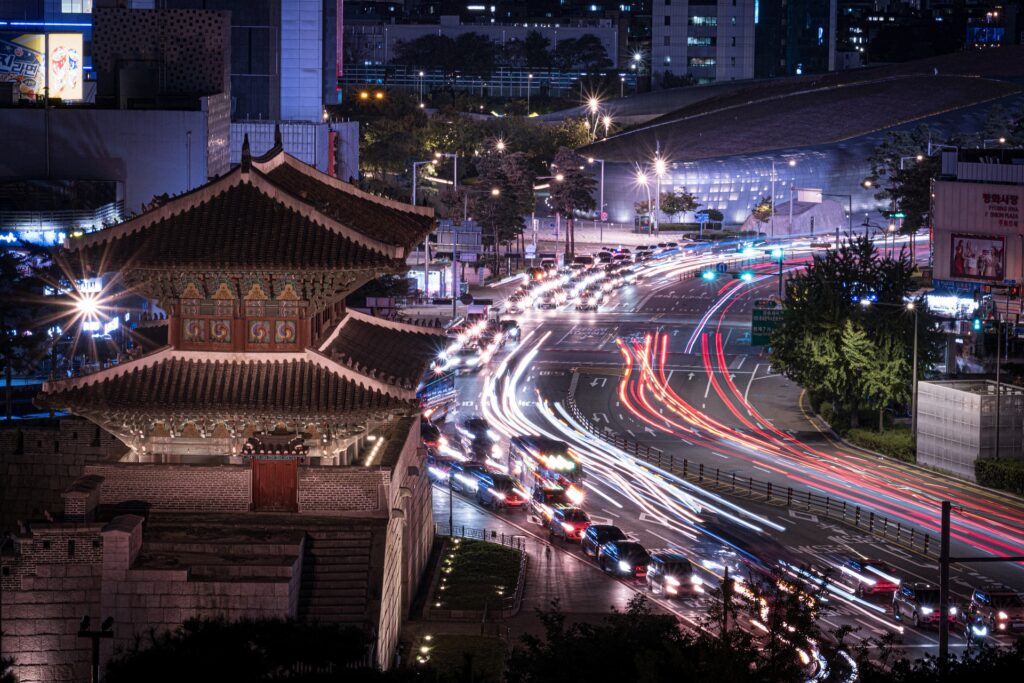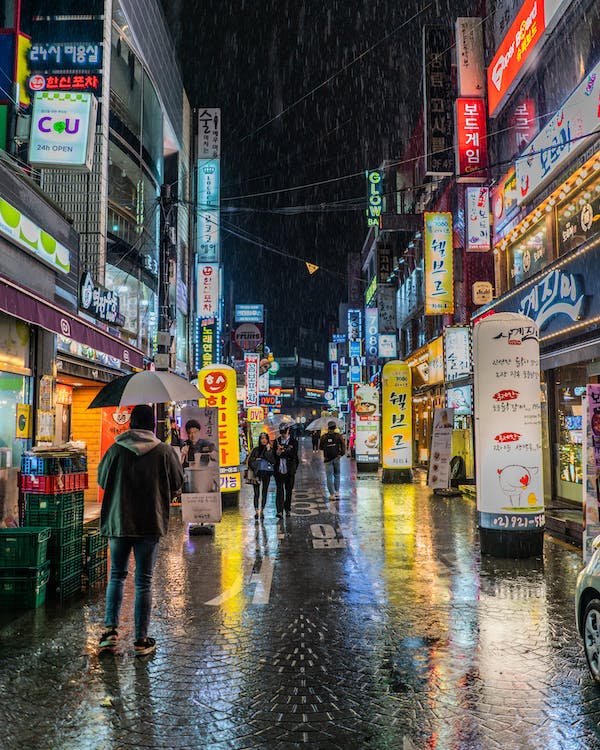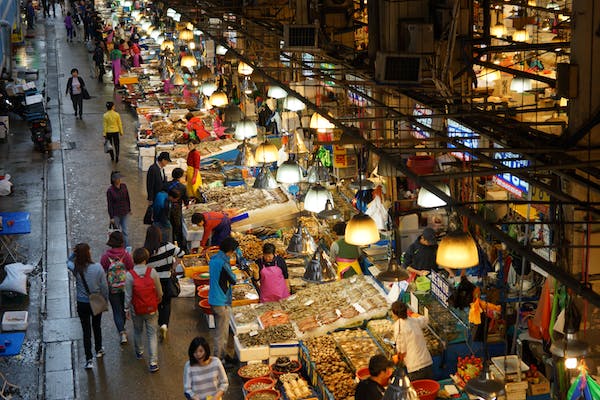
I have been in South Korea for four whole days now. The speed at which life progresses here never fails to excite and intrigue me. On my first day, I tapped my foot sheepishly standing in line at an escalator, hugging close to the right wall as a rush of people clamored down the left side of the escalator. Packed gill to gill in a crowded subway, I breathed sweet relief as a stream of bodies exited at Myeong-dong (명동) station. My eyes widened as the sea of bodies was separated by a fresh stream of native Seoul-ites entering the subway. The most surprising part – the streamlined efficiency of each patterned process.
One of the most overwhelming and confusing aspects of South Korean life is the speed. Ppalli Ppalli Culture (빨리 빨리 문화) refers to the overarching culture of speed and hurry present in South Korea. Rapid industrialization and civil competition in the 19th century promoted worker automation and speed in work ethic. Similar to a factory, in the busy city of Seoul, denizens move quickly to complete their task with haste and dedication, a skill unique to them and holistically supportive of the greater metropolitan. Food is delivered to customers’ doors within 10-30 minutes. Meat bubbling on an oiled grill is turned hastily. Massive elevators adorn stores in Hongdae (홍대), passengers entering based on the order of the floors they will exit upon. Each facet of Seoul life has been maximized for efficiency.
I find myself adjusting well to the pace here. In typical honeymoon fashion, I was enamored with the speed of delivery services and payment during my first few days in Seoul. Communicating in broken Korean with wait staff at the local KBBQ spot yielded platters of meats and side dishes (반잔) within minutes of ordering. But the stress became apparent when taking public transport, swaths of people pushing me left and right, combined with stoic looks from grizzled workers. I: a foreigner, slow, and dim. The workplace yielded similar speed, with an overlapping crowd of voices leading to pitches, project deadlines, and various delegations. Hindsight is twenty-twenty.


One week later, I bury myself in my phone as crowds of people push past me on the subway. Where I was once nervous and afraid to take a subway alone, for fear of masses casting me aside, I now find solace. There is silence in speed. Crosswalks stacked with people move rigorously based on an armada of reds and greens ushering them forward. I enter stores, browse, and leave with haste; workers checking bags and sending me on my merry way. My mind enters a dull bliss as I pass through the world around me. There are pros to this life. Packed into a fast city, no one knows my name and I pass through the world matching the pace of everyone around me. We are stationary lights, passing ships in the night – waiting on no man to board. Business consumes me. I feel like a cog rapidly spinning – supporting the greater machine.
There are cons to this life. I forget quickly where I’ve been and what I’ve done. I find myself exhausted, burning fuel an social battery to keep up with my goals to explore, to provide, and to create. My desires spin out of control. Seoul life is fast. Keeping the brisk pace is overwhelming at times, and you may find yourself lagging behind. But live this life. Experience the speed. Fall and let the masses catch you. I found camaraderie in the high octane life of Seoul. As any business knows: what good is the machine without the cogs to run it?










